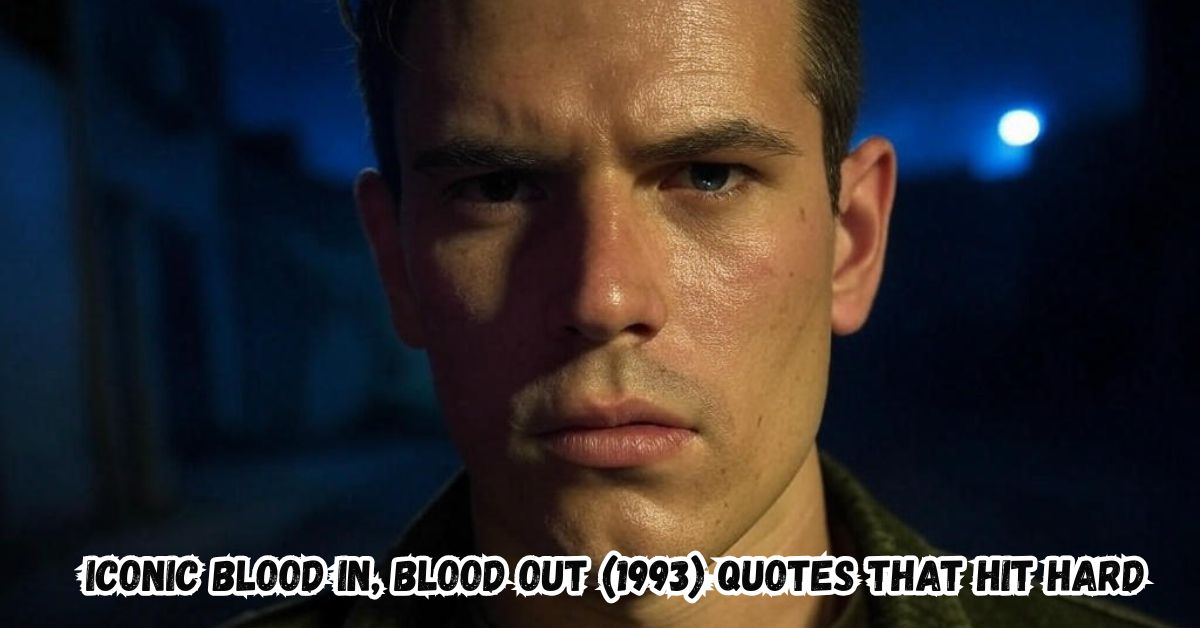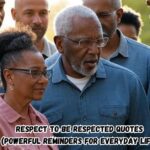Blood In, Blood Out isn’t just another crime drama. It’s a cultural phenomenon that continues to resonate with audiences decades after its 1993 release.
The film delves deep into the harsh realities of Chicano culture, gang life, and the complex bonds of family and brotherhood. Its dialogue captures raw emotion and authentic experience in ways few films have managed.
The quotes from this film hit hard because they speak truth. They reveal the struggles of cultural identity, the price of loyalty, and the difficult path to redemption. Each line carries weight. Each word feels earned through lived experience.
What’s Blood In, Blood Out All About?
This epic crime drama follows three Chicano cousins from East LA whose paths dramatically diverge through gang life, prison, and redemption, exploring the unbreakable bonds of family against a backdrop of violence and cultural identity.
- Blood In, Blood Out follows three cousins from East Los Angeles: Miklo, Paco, and Cruz
- The story spans nearly two decades of their interconnected lives
- It explores themes of gang loyalty, family ties, and personal identity
- The barrio serves as both setting and character, shaping each man’s destiny
- Prison becomes a crucial environment where power and survival are constantly tested
- The film shows the consequences of choices that can’t be undone
- At its heart, it’s about finding belonging in a world that rejects you
- Director Taylor Hackford created an unflinching look at street survival
- The film runs over three hours, allowing for deep character development
- It remains one of the most authentic portrayals of Chicano experience in American cinema
This epic narrative provides the context for the powerful quotes that have become part of film history.
Meet the Cast: The Stars Behind the Story
The film’s powerful performances come from Damian Chapa as Miklo, Jesse Borrego as Cruz, and Benjamin Bratt as Paco, alongside an ensemble cast that brings authentic depth to this gritty portrayal of Chicano life in East Los Angeles.
- Damian Chapa plays Miklo Velka, a half-white, half-Mexican young man desperate to prove his cultural identity
- Jesse Borrego portrays Cruz Candelaria, the artistic cousin whose talent offers escape from gang life
- Benjamin Bratt plays Paco Aguilar, the cousin who joins the military and later becomes a police officer
- Enrique Castillo is Montana, a prison gang leader who becomes Miklo’s mentor
- Delroy Lindo plays prison drug dealer Bonafide
- Victor Rivers portrays Magic Mike, a key member of La Onda
- The ensemble cast creates a believable world where these quotes emerge naturally
- Many actors brought personal understanding of Chicano culture to their performances
- The chemistry between the three leads makes their family bonds feel authentic
- The supporting cast provides depth to the prison world and barrio life
These performances give weight and authenticity to the dialogue that has become so beloved by fans.
Quotes from the movie Blood In, Blood Out
The film’s dialogue captures everything from tender moments to brutal realities. These quotes have stood the test of time, resonating with viewers across generations.
1. “Blood in, blood out.”
- This cornerstone phrase encapsulates the film’s central philosophy
- It represents the permanent nature of gang membership join with blood, leave only in death
- Miklo says this when fully committing to La Onda in prison
- The quote highlights the irrevocable nature of certain choices in life
- It speaks to the sacrifice required by gang loyalty
- The phrase has transcended the film to become part of cultural vocabulary
- It represents both protection and prison safety and entrapment
- The brutal simplicity of these four words carries immense weight
- It’s repeated throughout the film as a reminder of inescapable commitments
- The quote reflects the film’s unflinching look at the consequences of gang life
2. “Life’s a risk, carnal.”
- Miklo delivers this line to Paco during a pivotal moment
- “Carnal” is a term of brotherhood, reinforcing their bond despite disagreement
- The quote encapsulates Miklo’s willingness to gamble everything
- It reveals a philosophical acceptance of danger as part of existence
- This line has become one of the film’s most quoted phrases
- It speaks to the everyday reality of street survival
- The casual delivery belies the profound acceptance of mortality
- It shows how normalized danger becomes in their environment
- This life’s a risk mentality drives many of the characters’ decisions
- The quote captures both fatalism and courage in four simple words
3. “Family isn’t who you’re born to it’s who you’d die for.”
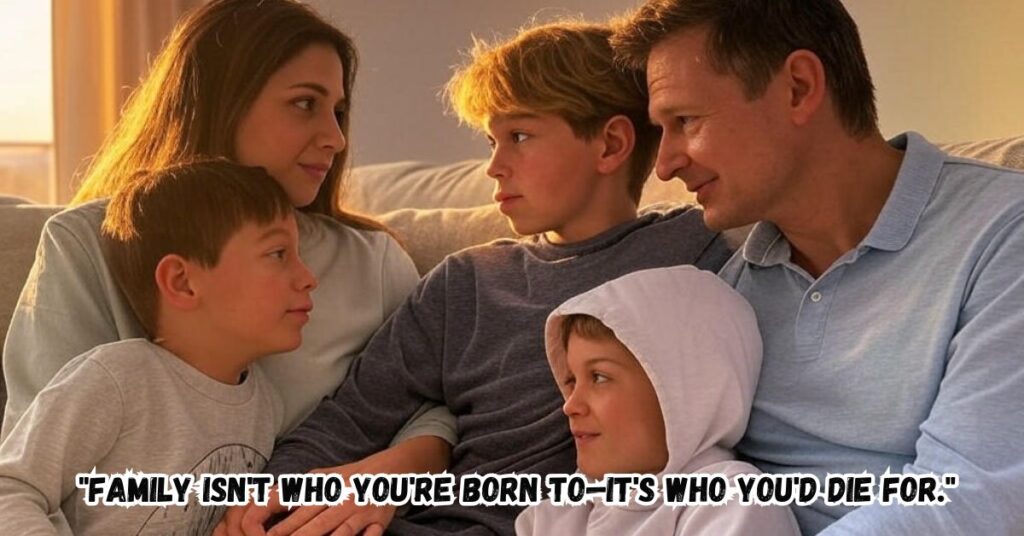
- This quote captures the film’s exploration of chosen family versus blood relations
- It reflects how gang membership creates bonds that sometimes exceed biological family
- The line speaks to the creation of family through shared experience and loyalty
- It highlights the desperation for belonging that drives many characters
- This philosophy explains many of the sacrifices characters make throughout the film
- It shows how brotherhood becomes a powerful force in shaping identity
- The quote acknowledges the painful reality of blood family sometimes failing us
- It celebrates the family we create through choice and loyalty
- The willingness to die for others becomes the ultimate test of family
- This concept of chosen family resonates deeply with many viewers
4. “When you expect nothing and get everything, that’s destiny.”
- Miklo reflects on his rise to power with this philosophical observation
- The quote reveals his belief in fate guiding his journey
- It shows how prison success changed his self-perception
- The line contains both gratitude and a sense of entitlement
- It reveals how Miklo justifies his actions through the lens of destiny
- The quote shows his transformation from outsider to leader
- It contains the irony of finding “everything” in prison of all places
- This perspective helps him accept the harsh path he’s traveled
- The concept of destiny removes some personal responsibility from choices
- This philosophy guides many of his subsequent decisions
5. “You don’t get it, do you? We’re all we’ve got!”
- Paco delivers this line with raw emotion during a heated argument
- It’s a desperate plea for unity among the cousins when their paths diverge
- The quote highlights their isolation from mainstream society
- It shows Paco’s understanding that they must rely on each other
- The line reveals the fear beneath his anger fear of losing his family
- It demonstrates how environmental influence creates interdependence
- The quote captures the frustration of not being understood by loved ones
- It shows how family bonds become even more important in harsh circumstances
- The line reveals Paco’s insight that their strength comes from unity
- It stands as a heartbreaking reminder of what’s at stake in their conflicts
6. “Don’t look at me, little puppet.”
- Montana delivers this chilling line to assert dominance in prison
- It reveals the power dynamics that rule prison life
- The quote demonstrates how dehumanization becomes a control tactic
- It shows Montana’s calculated intimidation strategy
- The line creates immediate understanding of prison hierarchy
- It reveals how language can establish and maintain power
- The term “puppet” reduces the other person to something controlled
- This quote establishes Montana’s character as a master manipulator
- It shows how prison life operates on different rules than the outside world
- The line’s quiet delivery makes it even more menacing
7. “Vatos Locos forever.”
- This battle cry unites the cousins in their youth
- “Vatos Locos” means “Crazy Guys” and was their neighborhood gang
- The phrase represents their earliest bonds of brotherhood
- It carries nostalgia for simpler times before their paths diverged
- The quote becomes both comforting and painful as their lives change
- “Forever” takes on ironic meaning as circumstances pull them apart
- It represents the idealism of youth before harsh reality intervenes
- The phrase appears in moments of both unity and division
- It serves as a reminder of their shared origins despite different paths
- The quote captures the bittersweet nature of childhood pledges
8. “You want the respect? You’ve got to earn it!”
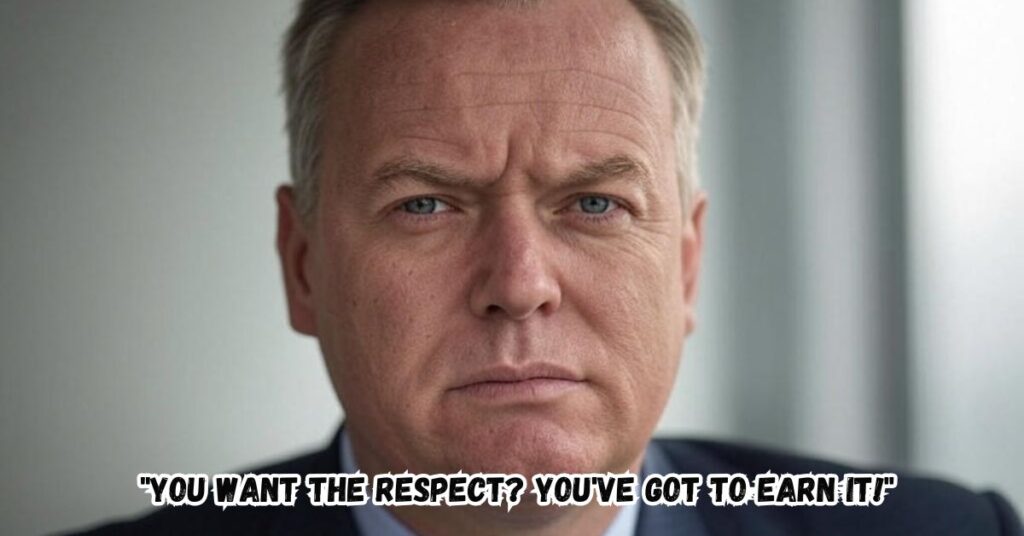
- This line cuts to the core of street and prison philosophy
- It represents the harsh meritocracy of gang life
- The quote shows how respect becomes currency in their world
- It reveals that nothing is given freely everything must be earned
- This mentality drives many characters to extreme actions
- The line explains why characters take such risks to prove themselves
- It highlights how respect becomes worth dying for in their environment
- The quote reflects real world gang mentality about earning position
- It shows how respect functions differently in marginalized communities
- This philosophy shapes nearly every character’s journey
9. “Every man has two sides the one he shows, and the one he hides.”
- This quote speaks to the duality present in each character
- It particularly reflects Cruz’s struggle between artist and addict
- The line acknowledges how survival requires wearing masks
- It reveals the psychological toll of maintaining different personas
- The quote shows depth of understanding about human nature
- It explains why characters sometimes behave in contradictory ways
- The line speaks to the universal experience of presenting different selves
- It highlights how gang life forces people to hide vulnerability
- The quote applies to the cousins’ different public and private selves
- It reflects the film’s nuanced approach to character development
10. “You can’t change the streets, but the streets can change you.”
- This philosophical observation speaks to environmental influence
- It acknowledges the power of surroundings to shape identity
- The quote explains why escape from gang life proves so difficult
- It shows respect for the formative power of the barrio
- The line contains both fatalism and warning
- It explains why characters who leave often find themselves pulled back
- The quote speaks to the lasting impact of where we come from
- It reveals how environment becomes internalized in identity
- The line acknowledges limited agency in certain circumstances
- It explains the transformation many characters undergo
READ MORE THIS BLOG : Long Love Paragraphs to Melt His Heart
11. “In here, we are family.”
- Montana says this to Miklo about La Onda prison gang
- The quote shows how gangs replace traditional family structures
- It offers belonging to someone desperate for acceptance
- The line reveals how prison life creates alternative kinship systems
- It demonstrates the powerful appeal of chosen family
- The quote shows how isolation makes people vulnerable to new loyalties
- It contains both comfort and manipulation
- The line reveals how basic human needs for connection are exploited
- It explains Miklo’s willingness to commit fully to La Onda
- The quote shows how prison gangs provide protection and purpose
12. “I’m a loyal soldier, carnal. I’ll die before I betray you.”
- This pledge demonstrates absolute gang loyalty
- It shows how life becomes secondary to maintaining honor
- The quote reveals the military like structure of prison gangs
- It demonstrates the extreme commitment expected within La Onda
- The line explains why betrayal is punished so severely
- It shows how loyalty becomes the highest virtue in their value system
- The quote reveals the life or death stakes of gang membership
- It demonstrates how sacrifice becomes normalized
- The line reveals the intense bonds formed through shared danger
- It explains choices that might seem irrational to outsiders
13. “You’re always trying to be white, Miklo.”
- This cutting accusation from Paco strikes at Miklo’s deepest insecurity
- It reveals the complex racial dynamics at play in the film
- The quote shows how cultural identity becomes contested territory
- It demonstrates how Miklo’s mixed heritage places him between worlds
- The line reveals why Miklo tries so hard to prove himself
- It shows how acceptance can be conditional based on appearance
- The quote highlights the painful reality of being rejected by your own culture
- It explains much of Miklo’s subsequent behavior as compensation
- The line reveals how identity becomes a battleground
- It demonstrates the film’s nuanced handling of racial complexity
14. “What’s the point of all this power if you’re alone?”
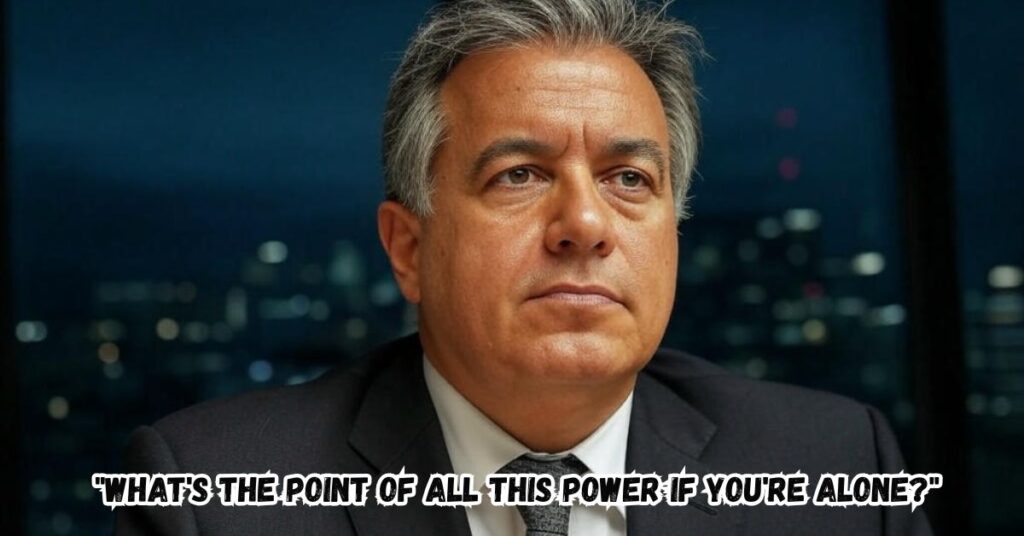
- Miklo reflects on the hollow nature of his prison success
- The quote reveals the emptiness of achievement without connection
- It shows momentary self awareness about the cost of ambition
- The line questions the value of power dynamics without love
- It reveals Miklo’s human need for meaningful relationship
- The quote shows rare vulnerability from a character who projects strength
- It demonstrates the film’s insight into the paradox of power
- The line reveals the isolation that comes with leadership
- It shows how success can lead to unexpected loneliness
- The quote provides a moment of genuine reflection amid chaos
15. “Pain is temporary, but pride is forever.”
- This philosophy explains the willingness to endure suffering for acceptance
- It justifies the physical trials of gang initiation
- The quote reveals how pride becomes worth any price
- It shows the value system that makes sacrifice meaningful
- The line explains why characters endure rather than escape
- It demonstrates how short-term thinking affects long term outcomes
- The quote shows how gang philosophy reframes suffering as worthy
- It reveals the psychological mechanisms that sustain loyalty despite pain
- The line highlights the importance of dignity in marginalized communities
- It shows how pride becomes essential when you have little else
16. “When you’re in this life, there’s no walking away, no backing out, and no second chances.”
- This stark reality check emphasizes the permanence of gang commitment
- It reinforces the “blood in, blood out” philosophy
- The quote highlights the consequences of seemingly simple choices
- It reveals the trap that many characters find themselves in
- The line speaks to the film’s unsentimental view of gang life
- It shows how initial decisions create inescapable paths
- The quote explains the high stakes of every interaction
- It demonstrates why characters feel they have no choice but to continue
- The line reveals the unforgiving nature of their world
- It explains the fatalism that many characters express
17. “The streets don’t love you, they only take from you, and they leave you with nothing.”
- Cruz delivers this line with the wisdom of harsh experience
- It represents growing awareness of how the barrio consumes its children
- The quote personifies the streets as a one-sided relationship
- It shows Cruz’s developing perspective on his environment
- The line contains warning for others still romanticizing street life
- It reveals the exploitation inherent in gang culture
- The quote demonstrates Cruz’s maturation and insight
- It speaks truth about the extractive nature of street life
- The line represents a moment of clarity amid addiction
- It shows how experience brings wisdom about environmental influence
18. “It’s not about the money or the power, it’s about the heart you bring to the fight.”
- Montana shares this wisdom about what truly matters in survival
- It reveals a value system beyond material success
- The quote shows respect for courage over resources
- It demonstrates the prison code that governs La Onda
- The line reveals Montana’s leadership philosophy
- It explains why certain characters earn respect despite disadvantages
- The quote values internal qualities over external circumstances
- It shows how heart becomes currency in their economy of respect
- The line reveals deeper values beneath surface conflicts
- It demonstrates the film’s exploration of what truly matters in life
19. “They’ll never respect you if they see fear in your eyes, not here, not anywhere.”
- This advice explains a fundamental rule of survival
- It shows how vulnerability becomes dangerous in harsh environments
- The quote reveals why characters develop tough exteriors
- It demonstrates how respect depends on perception
- The line explains behavior that might seem unnecessarily aggressive
- It shows how fear must be mastered to survive
- The quote reveals the constant performance required in prison and streets
- It demonstrates how respect functions as protection
- The line contains wisdom that applies beyond prison walls
- It explains the hypervigilance many characters display
20. “You fight for your family, even when they forget to fight for you. That’s what love means.”
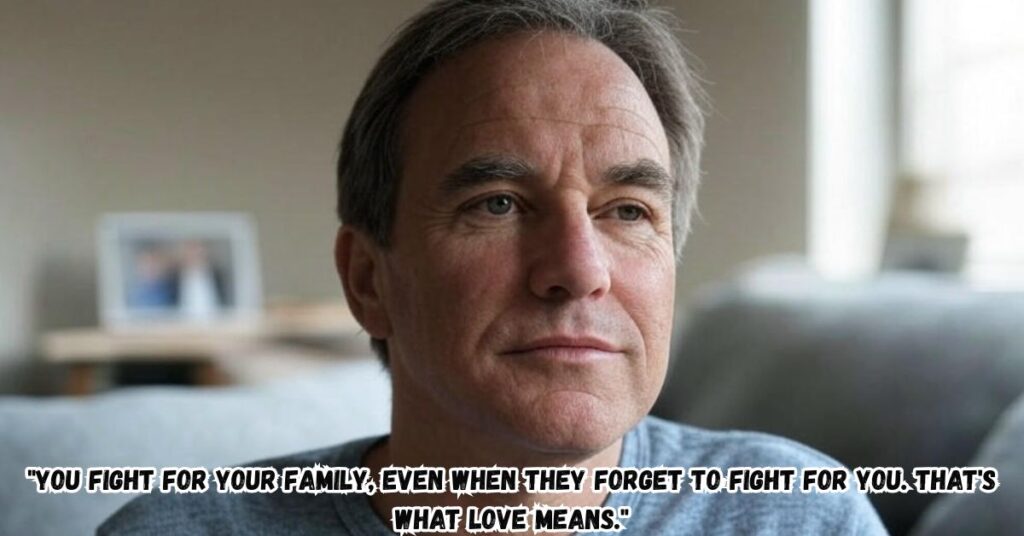
- This line reveals a mature understanding of unconditional love
- It shows commitment beyond reciprocity
- The quote demonstrates evolved thinking about family bonds
- It reveals character growth through suffering
- The line explains actions that appear self-sacrificing
- It shows how love transcends disappointment
- The quote reveals depth beneath tough exteriors
- It demonstrates the film’s nuanced exploration of love
- The line shows how family obligation transcends fairness
- It explains loyalty that persists despite betrayal
21. “We may have chosen different paths, but we’ll always be connected by the blood that ties us together.”
- Paco acknowledges the permanence of family despite different choices
- It shows recognition that separation doesn’t sever connection
- The quote reveals maturity in accepting divergent paths
- It demonstrates the enduring nature of blood bonds
- The line offers hope for reconciliation despite conflict
- It shows how blood family remains relevant despite chosen family
- The quote reveals the complexity of maintaining connections across difference
- It demonstrates the film’s ultimate message about family transcending circumstance
- The line acknowledges both separation and connection simultaneously
- It shows evolution in understanding what family truly means
READ THIS BLOG: 27 Sweet Monthsary Messages for Your Boyfriend
22. “Your circumstances don’t define you; your choices do. Every moment is a chance to change.”
- This profound statement offers hope amid deterministic surroundings
- It emphasizes personal agency despite environmental constraints
- The quote challenges fatalistic thinking about destiny
- It demonstrates the possibility of transformation
- The line offers redemption as an ongoing possibility
- It shows philosophical depth beneath surface action
- The quote reveals belief in human capacity for change
- It demonstrates the film’s complex view of fate versus choice
- The line offers wisdom about personal responsibility
- It shows how change comes through conscious decision-making
23. “Art is my freedom. No matter what they take from me, they can’t take what’s in my soul.”
- Cruz expresses how artistic expression provides escape
- It reveals how creativity sustains identity in oppressive environments
- The quote shows art as resistance against dehumanization
- It demonstrates Cruz’s unique path to survival
- The line reveals the indomitable nature of the human spirit
- It shows how interior life remains free despite external confinement
- The quote reveals Cruz’s profound understanding of true freedom
- It demonstrates how art becomes salvation amid destruction
- The line highlights the film’s respect for creative expression
- It shows how identity persists through creative outlet
24. “Respect isn’t something you’re born with. It’s something you earn through every choice you make.”
- This line captures the earned nature of dignity in their world
- It shows how respect functions as ongoing achievement
- The quote reveals the constant proving required in their environment
- It demonstrates how daily choices build or destroy reputation
- The line explains the high stakes of seemingly small decisions
- It shows how respect becomes life’s central pursuit
- The quote reveals the meritocratic values of street culture
- It demonstrates how respect requires consistent behavior
- The line highlights the central value driving many characters
- It shows how respect functions differently in marginalized communities
25. “You don’t need a gang or a badge to have family. Family is built on trust and love.”
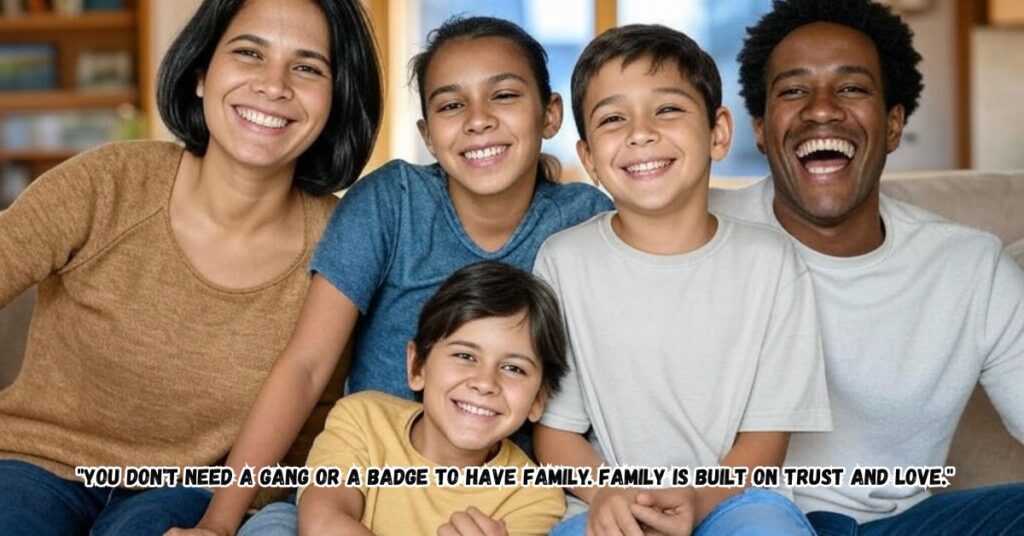
- This mature perspective challenges earlier gang-as-family mentality
- It shows evolution beyond institutional definitions of belonging
- The quote reveals growth toward healthier understanding of connection
- It demonstrates how chosen family can exist without violence
- The line offers alternative path to belonging and security
- It shows character development beyond gang mentality
- The quote reveals the film’s ultimate message about true family
- It demonstrates how trust and love transcend formal structures
- The line offers hope for connection beyond institutional boundaries
- It shows maturation beyond the limited vision of youth
26. “If you let your anger control you, it will destroy everything you love and everything you are.”
- This warning speaks to the self destructive nature of rage
- It shows wisdom gained through witnessing anger’s consequences
- The quote reveals understanding of emotion’s power to consume
- It demonstrates the film’s psychological insight
- The line offers caution about justified but destructive feelings
- It shows how anger becomes its own prison
- The quote reveals mature perspective on emotional control
- It demonstrates how unchecked emotion leads to consequences
- The line speaks universal truth applicable beyond gang context
- It shows the film’s wisdom about human nature
27. “We’re not just cousins. We’re brothers, not by blood alone but by the choices we’ve made to stand by each other.”
- This line beautifully articulates the film’s core value of brotherhood
- It shows how shared experience deepens blood connection
- The quote reveals the dual nature of their bond both blood and choice
- It demonstrates the film’s complex understanding of family
- The line highlights how actions define relationship beyond genetics
- It shows the earned nature of true brotherhood
- The quote reveals the characters’ understanding of what makes family real
- It demonstrates how standing together in adversity creates unbreakable bonds
- The line speaks to the film’s central theme of loyalty transcending circumstance
- It shows the beautiful synthesis of blood family and chosen commitment
28. “The streets will test you, and if you don’t stand tall, they’ll break you into pieces.”
- This warning captures the unforgiving nature of barrio life
- It personifies the streets as active force testing character
- The quote reveals the constant pressure of environment
- It demonstrates how weakness becomes exploited
- The line explains why characters develop hardened exteriors
- It shows how environment becomes predator to the vulnerable
- The quote reveals the film’s unflinching view of street reality
- It demonstrates why street survival requires constant vigilance
- The line warns about the consequences of showing weakness
- It shows respect for those who manage to stand tall despite pressure
29. “Surviving is one thing, but living means finding purpose and holding onto it.”
- This profound observation distinguishes mere existence from meaningful life
- It shows philosophical depth beneath survival story
- The quote reveals hunger for meaning beyond daily preservation
- It demonstrates the universal human need for purpose
- The line elevates the narrative beyond crime drama to existential exploration
- It shows character growth through suffering toward wisdom
- The quote reveals the film’s ultimate concern with meaning, not just action
- It demonstrates how purpose provides anchor amid chaos
- The line offers pathway beyond mere survival to actual living
- It shows the film’s respectful treatment of human dignity and purpose
30. “Blood might make us relatives, but loyalty is what makes us a real family.”
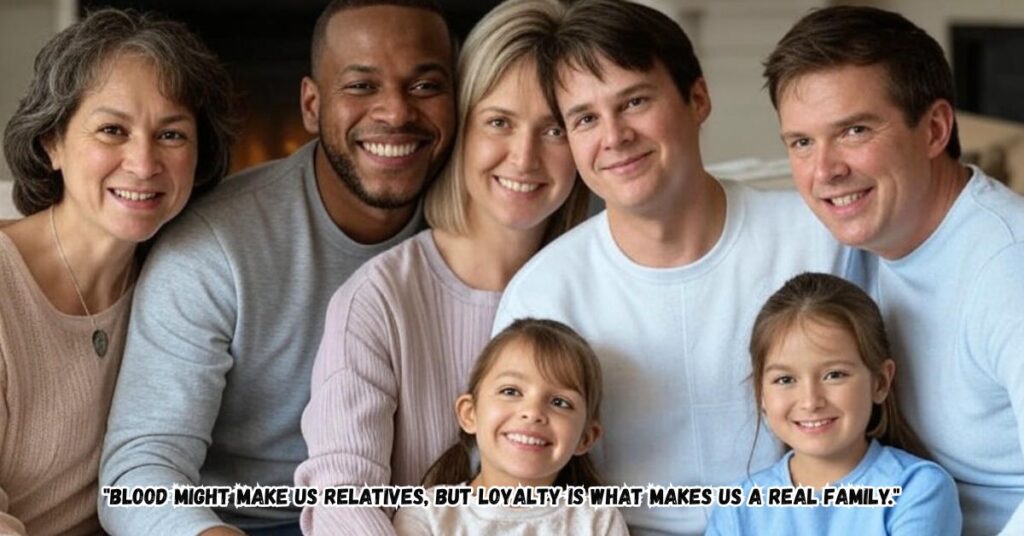
- This quote captures the film’s complex view of what constitutes true family
- It acknowledges biology while elevating commitment
- The quote reveals how loyalty transforms connection
- It demonstrates the earned nature of meaningful relationship
- The line distinguishes between accident of birth and choice of commitment
- It shows how family becomes defined through action, not just genetics
- The quote reveals the film’s ultimate values regarding connection
- It demonstrates how loyalty creates bonds stronger than DNA
- The line offers nuanced understanding of family beyond simple definitions
- It shows respect for chosen bonds alongside blood relationship
Frequently Asked Questions
What is the significance of the title “Blood In, Blood Out”?
The title represents the gang code that joining requires bloodshed (blood in) and the only way out is death (blood out).
Who were the three main characters in the film?
The story follows three cousins: Miklo (Damian Chapa), Cruz (Jesse Borrego), and Paco (Benjamin Bratt).
Why is this film considered culturally significant?
It’s one of the most authentic portrayals of Chicano experience and gang life in American cinema, exploring themes of identity and family.
How long is the film?
The film runs over three hours, allowing for deep character development across nearly two decades of the characters’ lives.
What does “Vatos Locos forever” mean in the film?
It’s the battle cry of the cousins’ neighborhood gang meaning “Crazy Guys forever,” representing their earliest bonds of brotherhood.
Conclusion
These quotes from Blood In, Blood Out continue to resonate decades after the film’s release because they speak to universal truths about identity, family, and survival. Through raw, authentic dialogue, the film captures the complex reality of Chicano experience and gang life with unflinching honesty.
The enduring power of these lines reflects the film’s deep understanding of human nature and the difficult choices people make when trying to belong. Whether exploring loyalty, redemption, or the price of power, these quotes reveal the heart beneath the hard exterior of street life.
Blood In, Blood Out remains a cultural touchstone precisely because its words feel lived rather than written, capturing both the pain and dignity of its characters’ struggles.

Bolt is a seasoned SEO expert with a passion for content writing, keyword research, and web development. He combines technical expertise with creative strategies to deliver exceptional digital solutions.
